The Progressive Moment in Global Politics Is Over
In country after country, many working-class voters – especially those outside the biggest cities – are signalling the same thing.
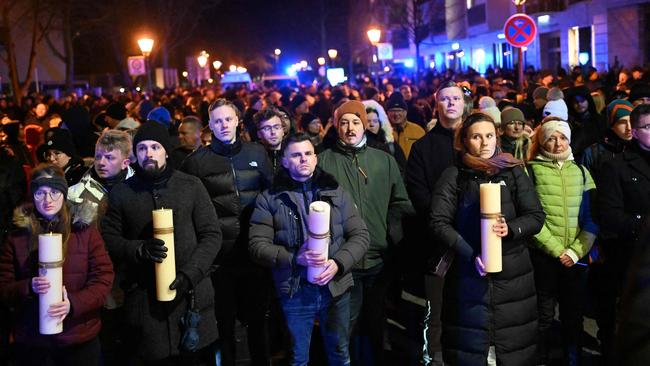
The progressive moment is over – at least for now.
This past year showed that the progressive politics that dominated most industrialised countries over the past two decades or more is shifting to the right, fuelled by working-class anxieties over the economy and immigration, and growing fatigue with issues from climate change to identity politics.
The return of Donald Trump to the White House is the most dramatic and important example – but it is far from the only one.
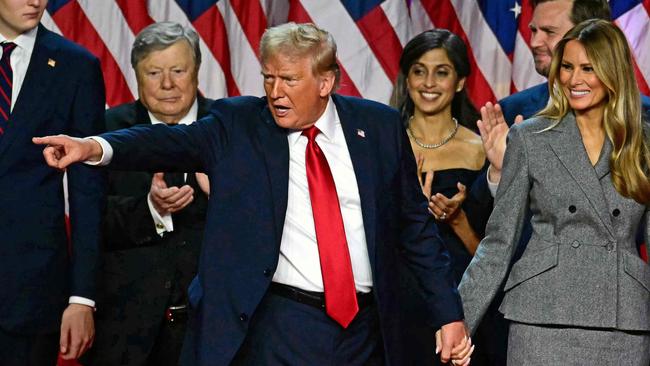
Across Europe, where economic growth has largely stalled, conservatives and populist right-wing parties are making unprecedented gains. Three-quarters of governments in the European Union are either led by a right-of-centre party or are ruled by a coalition that includes at least one.
The shift is set to continue. Canada appears poised to kick out a deeply unpopular progressive prime minister and Germany is expected to dump its centre-left government. Polls show the top two parties in Germany represent the centre-right and the far-right.
Part of the shift is the normal pendulum of politics swinging back and forth between established parties on the left and right. The difference this time is a strong strain of populism and a growing rejection of traditional parties.
In country after country, many working-class voters – especially those outside the biggest cities – are signalling the same thing: They mistrust the establishment – from academics to bankers to traditional politicians – and feel these elites are out of touch and don’t care about people like them.
Years of increased migration and trade, coupled with low economic growth, have led to a backlash and a rise in nationalism, where people want more of a sense of control, political analysts say. The rise of social media has exacerbated divisions and led to an upsurge in antiestablishment parties.
“It’s a broad shift that goes across countries,” said Ruy Teixeira, a lifelong Democrat who now works for the centre-right American Enterprise Institute think tank. “Working-class people are just pissed off – about immigration, about all the culture war stuff, and the relatively poor economic performance that has shaped the working-class experience in the 21st century.” While one of the two establishment parties won in the US, the Republicans have largely been taken over by the insurgent figure of Trump, who clearly has a mandate from voters to shake things up, said Teixeira. He said he doesn’t see either the left or conventional right easily recapturing Trump’s populist, multiracial working-class majority.
In Canada, Prime Minister Justin Trudeau’s centre-left Liberal Party looks to be careening toward a decisive election loss, trailing the Conservative Party by roughly 20 points in opinion polls. Trudeau must hold a vote by October 2025.
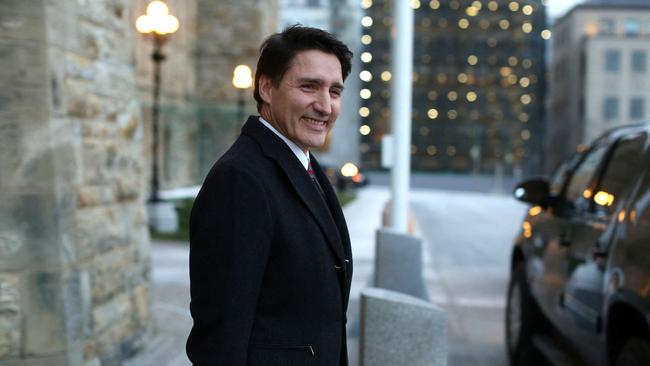
Voters are experiencing “Trudeau fatigue” after a rocky nine years in power and are frustrated with high inflation, elevated housing costs and anger over Canada’s open-door immigration policies, said Shachi Kurl, president of polling firm Angus Reid.
One recent poll by Abacus Data showed more Canadians had a positive view of Trump than of Trudeau.
Pierre Poilievre, the leader of Canada’s Conservative Party, has taken up much of the same populist rhetoric used by other right-wing movements around the world. In 2022, he aligned himself with Canada’s trucker convoys, a protest movement ignited by opposition to vaccine mandates and Covid-19 lockdowns.
Poilievre also has called for curtailing many of the policies introduced by Trudeau to curb climate change, including a carbon tax; pressed Trudeau about voters’ affordability concerns; and said he would reduce immigration.
Kurl noted that even though the Conservative Party is leading in polls, Canadians still hold an unfavourable opinion of Poilievre. Voters aren’t so much choosing Poilievre and his right-wing politics as they are rejecting Trudeau, she said.
In Europe, politicians also face a far more sceptical electorate after years of stagnant real wages and rising migration. That has fuelled support both for the establishment right – made up of social conservatives and free-market champions – and for antiestablishment populists, who want protection from migration and trade, said Manès Weisskircher, a political scientist at the Dresden University of Technology.
The rapid reshuffling of voters’ priorities in the past few years has made issues associated with the centre-left – such as climate change, social justice and identity politics – seem less relevant, said Ursula Münch, director of the Academy for Political Education in Tutzing, Germany. That could mean governments become more concerned with national rather than international priorities, reducing co-operation in areas from security to the environment.
“It turns out people [in the West] value their own jobs more than whether some islands are going to sink into the ocean,” she said.
The U.K. this year seemingly went the opposite direction, kicking out the Conservative Party and electing the Labour Party. But that was after 14 years of Tory rule and marked more of a rejection of the incumbent, said Tony Travers, a political scientist at the London School of Economics.
In many ways, the UK has the same dynamics as the rest of the West, with growing voter anger over the economy and immigration. The anti-immigration Reform UK party has surged at the expense of the Conservatives. And Prime Minister Keir Starmer is deeply unpopular after just six months in power.
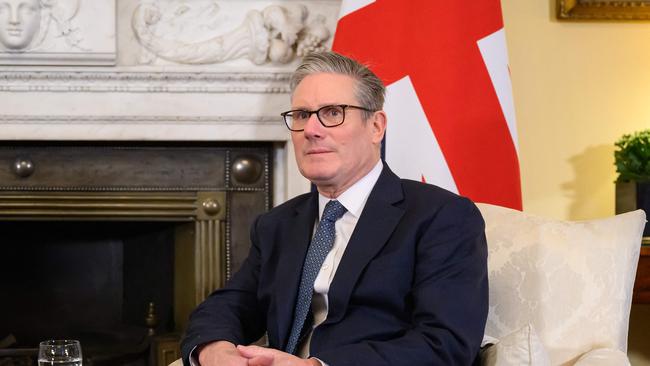
“Reform is taking advantage of the same thing that’s happening across Europe, which is the unpopularity of all the other establishment parties, ” said Travers. A weak economy and record migration provide an opening for populists to say, “All these people that run the traditional parties have failed you. The system has failed you. Only we can fix it,” he added.
Last June, voters across the EU elected a new European Parliament. The clear victor was the conservative European People’s Party. About half of government heads in the 27-country bloc belong to parties affiliated with the EPP.
But further to the right, gains were even bigger. Parties such as Germany’s AfD, France’s National Rally and Italy’s Brothers of Italy are scattered across multiple – and sometimes mutually hostile – groups in the chamber. Yet together, they now form the second biggest contingent in the house after the EPP, a big jump from the last election.
National Rally scored two-thirds of the votes at the European election and in the first round of the French general election a few weeks later. Despite a mixed second-round performance, it is now the largest single party in France’s National Assembly.
The nationalist, anti-immigration AfD won its first state election in eastern Germany this autumn and finished a strong second in two others. Ahead of February’s general election, opinion polls suggest it could get 16 per cent to 20 per cent of votes, behind only the conservative Christian Democratic Union at 30 per cent to 34 per cent.
The centre-left government of Chancellor Olaf Scholz is the least popular since 1949, according to Manfred Güllner, the head of public polling firm Forsa.
Support for the CDU is rising because of a weak economy, while the AfD is gaining traction among those worried about immigration, said Güllner.
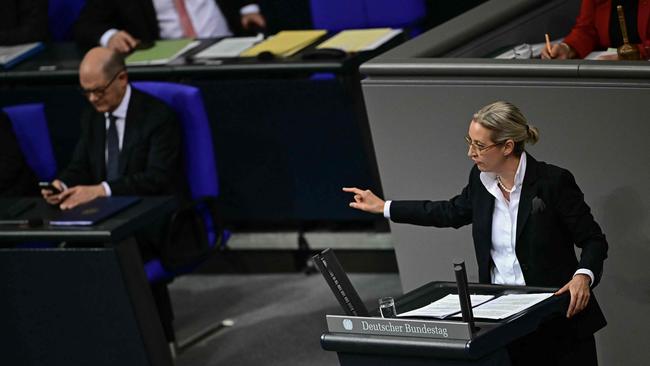
A key difference between conservatives, who tend to favour the status quo, and far-right populists often is that the latter can more credibly criticise established parties because most haven’t held power. Where they have, as in Italy, they have moderated to govern.
Far-right parties “have solidified around a constant, ongoing critique of elites,” said Stefan Marschall, professor of political science at Heinrich Heine University in Düsseldorf. “Whereas right-of-centre parties, which are much more firmly anchored in the political system, can’t really engage in this classic elite criticism.” While European voters are increasingly leaning right, this won’t always translate into more centre-right governments because of animosity between establishment conservatives and insurgent populists -- which are much more sceptical of the EU, free trade and man-made climate change, and take a harder line on immigration. They are also more wary of spending or welfare cuts.
In France, National Rally leader Marine Le Pen recently voted to topple the government of conservative Prime Minister Michel Barnier.
In Germany, the CDU has ruled out a coalition with the AfD. That leaves the more likely option of it partnering with the centre-left Social Democrats or the Greens. The risk with such awkward coalitions of opposites is that they lack the political common ground to govern decisively, said Münch. “This could increase dissatisfaction as voters see that political paralysis sets in,” she said. “This is exactly what the extremists want.”
The Wall Street Journal

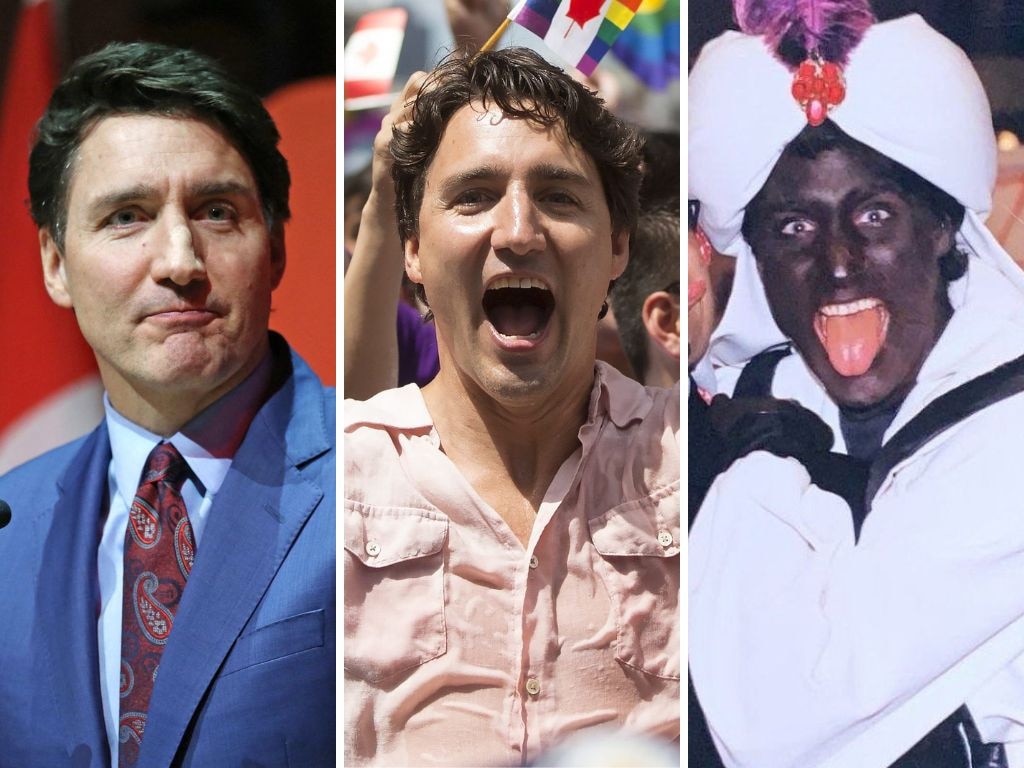





To join the conversation, please log in. Don't have an account? Register
Join the conversation, you are commenting as Logout